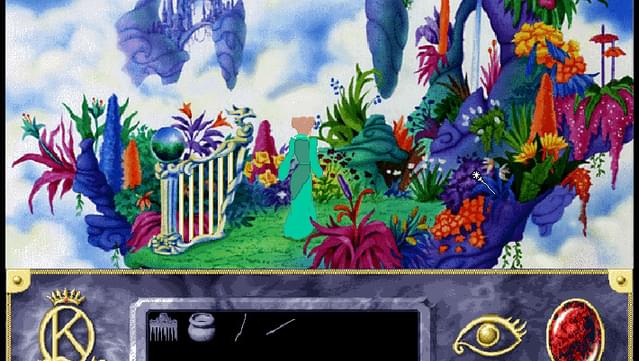

It’s not the limits of technology that makes you die so often or gets you stuck. So in the end, as historical as this game may be, there’s no excuses for such poor design decisions. And don’t expect the game to give you any hints! You’re happily wandering around for hours trying to figure out what you did wrong.

Or worse: you forgot to do something vital which results in the game becoming impossible to complete but for some reason, the game doesn’t tell you. It’s very well possible to die because you didn’t pick up a certain object even if that object was in a very obscure corner of a screen. On top of that, the game seems to love hitting you over the head for unforeseeable circumstances. Often, you’ll have the right idea but using the ‘wrong’ words will result in you mistakenly believing it’s not the right solution. Clever ideas don’t work and the text parser is incredibly primitive. There’s many dozens of ways to die and most of the time, it’s unpredictable and unavoidable and you’re left feeling cheated. You simply can’t make an adventure game that is all about exploring and investigating and yet punish the gamer every few minutes because he’s … exploring and investigating. I’m sure the critics will chastise me for saying so, but Infocom pushed the genre forwards by making complex and involving text adventures with clever puzzles and imaginative worlds to explore when King’s Quest came along and took a BIG step backwards by undoing everything Infocom did.įor starters, the story is laughable and generic and the world is bland and ripped straight out of classic (yet also long-in-the-tooth) fairy tales and those aren’t even the worst parts about the game! No, the worst mistake is the way the game plays. Yes, KQ1 crossed many boundaries and introduced to us the foundations for a new genre, opening the door for games such as Maniac Mansion, Space Quest and other classics BUT … well, the game is crap. Sadly enough, that’s where the positive comments have to end. At the time, the graphics were astounding, resulting in a huge hit in the USA (although much less so in Europe). Released as early as 1983, it overshadowed the text-only Infocom games in terms of technology. Made by the legendary Roberta Williams, King's Quest 1 laid the foundations for what was to become the “graphical adventures” genre.


 0 kommentar(er)
0 kommentar(er)
